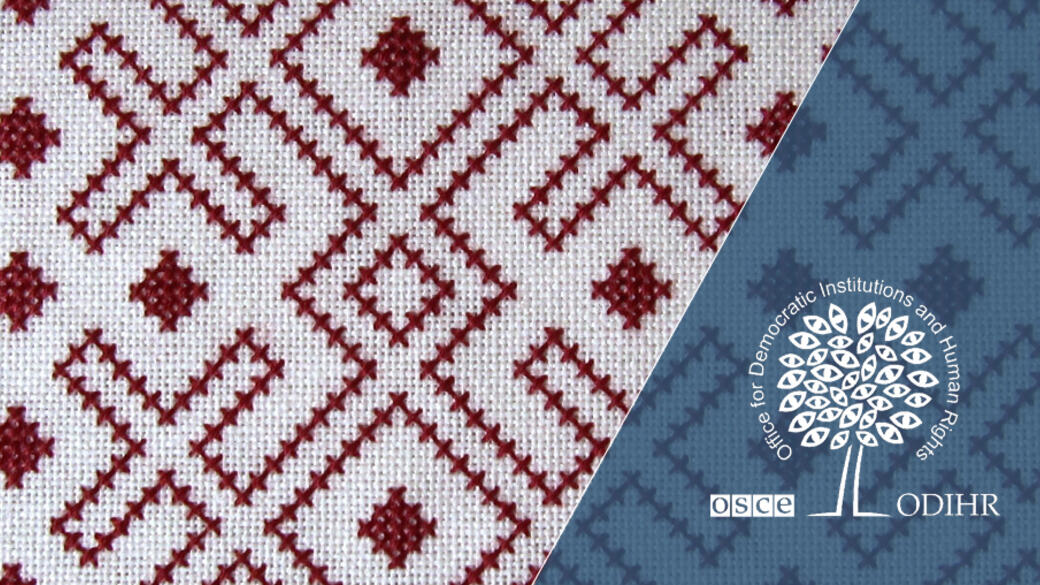Project
Promoting Democratization and Human Rights in Belarus


Quick links
- Project period:
- January 2018 - 31 December 2019
- Implemented by:
- OSCE Office for Democratic Institutions and Human Rights
- Fields of work:
- Democratization, Human rights
Overview
The OSCE Office for Democratic Institutions and Human Rights (ODIHR) is implementing the Promoting Democratization and Human Rights in Belarus project to assist the country in meeting its OSCE commitments and other international obligations with respect to the rule of law, human rights and equal participation of women in democratic processes. The two-year project began in January 2018 and is funded by the European Union. ODIHR will provide assistance to Belarus based on the Office’s extensive experience in democratization and human rights work across the OSCE region.
Rule of Law
As an OSCE participating State, Belarus has committed itself to a number of rule of law-related obligations, including “supporting and advancing the principle of justice” (Copenhagen 1990) and “recognizing that all actions by public authorities must be consistent with the rule of law” (Budapest 1994). ODIHR is mandated to help participating States fulfil those obligations through a range of activities, including “organizing meetings and seminars and co-operating in training and education” (Prague 1992). ODIHR’s activities related to the rule of law as part of the project are tailored to the context of Belarus, as they have been identified by Belarusian interlocutors, as well as other relevant bodies and institutions. ODIHR expects to train 200 legal professionals, including judges, prosecutors, lawyers and staff members of justice institutions. ODIHR activities will include thematic seminars and exchange visits on rule of law and justice issues.
Human Rights Education
Within the OSCE, Belarus has also committed to ensuring access to education for individuals regardless of their “race, colour, sex, language, religion, political or other opinion, national or social origin, property, birth or other status” (Vienna 1989). It has also affirmed that it is essential that “citizens are educated on human rights and fundamental freedoms” (Moscow 1991). ODIHR will tailor its activities to the needs of the Ministry of Education of Belarus and other professionals responsible for the development of the teaching curriculum and educational planning activities. ODIHIR’s work will also respond to the aims of several policy strategies adopted by Belarus in the area of education, including the state programme “Education and youth policy”, which covers the period from 2016 to 2020. ODIHR activities will include provision of expert assistance to analyse existing legislation on education, to set the priorities for human rights education and to help develop educational planning documents and a teaching curriculum. The Office will conduct a “training of trainers” session so that the Ministry of Education will have a pool of trainers it can deploy across the country on the topic of human rights education. ODIHR will also deliver a workshop to build the capacity of local education policy specialists.
Women’s participation and leadership
As an OSCE participating State, Belarus has recognized that “full and true equality between men and women is a fundamental aspect of a just and democratic society based on the rule of law [and that] the welfare of all its members require equal opportunity for full and equal participation of men and women” (Moscow 1991). Belarus has already established a basic legal and regulatory framework for gender equality. Although women’s representation in the Belarusian parliament exceeds the OSCE average, more needs to be done to achieve true equality. ODIHR will support Belarus in its long-term efforts to achieve gender equality, by strengthening women’s leadership potential, facilitating networking and sharing of good practices, and helping to develop strong institutional mechanisms for women’s participation. ODIHR activities will include organizing training workshops to strengthen the leadership capacities of young women and existing gender equality advocates. The Office will also support the establishment of a network of women parliamentarians in Belarus and build their capacity to thrive as gender equality advocates. Finally, ODIHR will help organize international forums for women leaders in the Commonwealth of Independent States region to explore how professional women can enhance their leadership skills.
Background
ODIHR and the European Union share the view that sustainable peace, development and prosperity cannot exist without respect for democracy, the rule of law, human rights and gender equality. For both institutions, these values are central in determining their assistance to states.